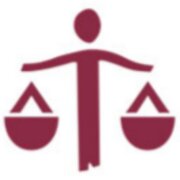Best State, Local, and Municipal Law Lawyers in Cape Town
Share your needs with us, get contacted by law firms.
Free. Takes 2 min.
List of the best lawyers in Cape Town, South Africa
About State, Local, and Municipal Law in Cape Town, South Africa
State, Local, and Municipal Law encompasses the regulations, statutes, and legal principles that govern the operation and organization of local government entities in Cape Town, South Africa. This area of law includes zoning and land use, municipal governance, public finance, regulatory compliance, and local government operations. It also deals with the relationship between citizens and local government, addressing matters such as property taxes, local elections, and utility services. Understanding these laws is crucial for both residents and businesses in order to comply with the legal framework governing local affairs.
Why You May Need a Lawyer
There are several situations where individuals or businesses may require legal assistance in matters of State, Local, and Municipal Law:
- Property and Zoning Disputes: When purchasing property or developing land, you may face issues related to zoning regulations or disputes with neighbors.
- Permits and Licensing: Navigating the process of acquiring building permits, business licenses, or other municipal approvals can be complex and legal advice can be beneficial.
- Local Government Issues: If you are involved in a conflict with a municipal authority or need to challenge a municipal decision, legal counsel can help articulate your case.
- Public Contracts: Engaging in public procurement or contracts with local authorities requires an understanding of legal obligations and regulations.
- Regulatory Compliance: Businesses need to ensure they comply with local regulations to avoid penalties.
Local Laws Overview
Key aspects of local laws in Cape Town relevant to State, Local, and Municipal Law include:
- Zoning and Land Use: Laws that regulate how land can be used, including residential, commercial, and agricultural zones.
- Municipal Governance: Rules regarding the operation and structure of local government bodies and councils.
- Environmental Regulations: Laws intended to protect the environment, which can impact development projects.
- Taxes and Public Finance: Regulations concerning property taxes, utility rates, and local government funding.
- Public Health and Safety: Regulations intended to ensure community health and safety, including building codes and sanitation standards.
Frequently Asked Questions
What is zoning law?
Zoning law controls how land can be used in different areas, dividing them into zones such as residential, commercial, or industrial. Zoning laws can affect property development, business operations, and community planning.
How do I obtain a building permit in Cape Town?
To obtain a building permit, you must submit an application to the City of Cape Town's Building Development Management with detailed plans and adhere to the requirements stipulated by local building regulations.
Who enforces municipal laws in Cape Town?
The enforcement of municipal laws is typically handled by local government departments, such as building inspectors, health officials, and local police, depending on the specific ordinance or regulation.
What are my rights regarding service delivery issues with the municipality?
Citizens have the right to expect certain levels of service delivery from their municipality, and in cases of failure, they can lodge complaints or seek legal remedy depending on the situation.
Can I appeal a decision made by the local council?
Yes, decisions by local councils can often be appealed. The process typically involves submitting a formal appeal or objection in writing to the appropriate municipal department or body.
Are there regulations for noise pollution in Cape Town?
Yes, Cape Town has noise control regulations that limit the acceptable levels of noise in residential and business areas to maintain public peace and comfort.
What should I do if I receive a municipal fine I believe is unjust?
If you receive a fine you consider unjust, you can dispute it through the appropriate municipal channels, often beginning with a written objection to the department that issued the fine.
How are property taxes calculated and billed in Cape Town?
Property taxes in Cape Town are based on the municipal value of your property. Taxes are calculated annually, and property owners receive a bill detailing the amount due.
Can local governments in Cape Town impose new regulations at any time?
Local governments can introduce new regulations, but these typically require a period of public consultation and are subject to approval processes to ensure transparency and accountability.
Where can I find information about upcoming local elections?
Information about upcoming local elections can be found on the official City of Cape Town website and through local municipal offices.
Additional Resources
For further assistance in matters related to State, Local, and Municipal Law, you can consult the following resources:
- City of Cape Town Official Website: Provides information on municipal services, bylaws, and regulations.
- Western Cape Government: Offers resources and guidance on provincial and municipal matters.
- Legal Aid South Africa: Offers free legal assistance for those who qualify.
- Community Law Centres: Various organizations provide legal education and advocacy at the community level.
Next Steps
If you need legal assistance in matters of State, Local, and Municipal Law in Cape Town, consider the following steps:
- Identify Your Issue: Clearly define the specific legal issue you are facing to determine what expertise you need.
- Consult a Lawyer: Seek out a lawyer or legal firm that specializes in municipal law for an initial consultation.
- Gather Documentation: Compile any relevant documents and information related to your legal issue before your consultation.
- Consider Mediation: In some cases, mediation can be a quicker and less expensive way to resolve disputes with local authorities.
- Contact Local Resources: Utilize local resources for advice, especially if you need assistance with basic questions or understanding procedures.
Lawzana helps you find the best lawyers and law firms in Cape Town through a curated and pre-screened list of qualified legal professionals. Our platform offers rankings and detailed profiles of attorneys and law firms, allowing you to compare based on practice areas, including State, Local, and Municipal Law, experience, and client feedback.
Each profile includes a description of the firm's areas of practice, client reviews, team members and partners, year of establishment, spoken languages, office locations, contact information, social media presence, and any published articles or resources. Most firms on our platform speak English and are experienced in both local and international legal matters.
Get a quote from top-rated law firms in Cape Town, South Africa — quickly, securely, and without unnecessary hassle.
Disclaimer:
The information provided on this page is for general informational purposes only and does not constitute legal advice. While we strive to ensure the accuracy and relevance of the content, legal information may change over time, and interpretations of the law can vary. You should always consult with a qualified legal professional for advice specific to your situation.
We disclaim all liability for actions taken or not taken based on the content of this page. If you believe any information is incorrect or outdated, please contact us, and we will review and update it where appropriate.













